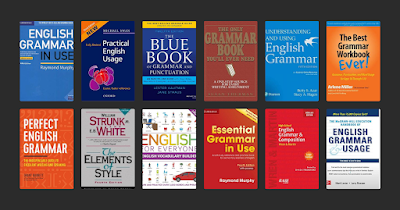Best Grammar Books for IELTS and TOEFL Candidates
When preparing for standardized English proficiency tests like IELTS or TOEFL, mastering grammar is non-negotiable. As someone who has spent years exploring the best resources, I’ve come across some exceptional grammar books that can help candidates strengthen their foundation and ace their exams.
1. "English Grammar in Use" by Raymond Murphy
This book is a classic and for good reason. Tailored for intermediate learners, it’s an essential resource for anyone aiming to build a solid grammar foundation. The explanations are clear, and the exercises are practical, covering all the grammatical nuances you’ll need for IELTS or TOEFL. Each unit focuses on a specific topic and follows a structured approach, making it ideal for self-study. I personally appreciate the progression from simple to complex concepts, ensuring learners don’t feel overwhelmed.
2. "Grammar for IELTS" by Diana Hopkins and Pauline Cullen
This Cambridge publication is a gem specifically designed for IELTS candidates. The book doesn’t just teach grammar; it integrates grammar exercises with IELTS-style tasks, helping you kill two birds with one stone. The contextual approach aligns grammar practice with listening, reading, writing, and speaking exercises. From my perspective, this is a must-have if your target is a high band score.
3. "Advanced Grammar in Use" by Martin Hewings
If you’re already at a higher level and looking to refine your grammar, this book is your go-to resource. It’s particularly beneficial for TOEFL candidates who need to demonstrate advanced grammar usage in writing and speaking tasks. I’ve found it incredibly helpful for mastering complex structures and nuances that can elevate your performance.
4. "The Grammar Book" by Diane Larsen-Freeman and Marianne Celce-Murcia
Though more academic in nature, this comprehensive book dives deep into the intricacies of English grammar. It’s particularly useful for candidates aiming for top scores or those with a passion for linguistic details. While it’s not the easiest read, the depth of content makes it worth the effort.
5. "Oxford Practice Grammar Series" by John Eastwood
This series offers three levels: Basic, Intermediate, and Advanced, catering to learners at different stages. The clear explanations, coupled with ample practice questions, make it an excellent choice for anyone preparing for IELTS or TOEFL. What sets this series apart, in my view, is its adaptability—you can start where you’re comfortable and gradually progress.
6. "Collins Grammar for IELTS" by Fiona Aish and Jo Tomlinson
Another IELTS-specific book, this one is well-structured and easy to follow. Each unit focuses on a particular grammar point and ties it to an IELTS skill. The practice tests at the end of the book provide valuable exam-style questions to test your knowledge.
Why These Books Stand Out
From my experience, a good grammar book is not just about rules; it’s about application. The books listed above combine clarity, practical exercises, and test-specific strategies, making them perfect for IELTS and TOEFL candidates. They’ve been instrumental in my own learning journey and in helping others achieve their goals.
Tips for Using These Books Effectively
Consistency is key. Dedicate at least 30 minutes daily to grammar practice.
Pair grammar with skills practice. For example, after learning conditionals, try incorporating them into a writing task.
Review regularly. Revisit challenging topics to ensure retention.
Choosing the right resources can make a significant difference in your test preparation. These books are, in my opinion, among the best tools you can invest in to boost your grammar skills and, ultimately, your confidence in IELTS or TOEFL.
Amir Jahangiri, Master TEFL expert
Email : Jahangiriamir@outlook.com
Telegram : Jahangiri_net
Instagram : Jahangiri_net
Mobile : +989155509663

Comments
Post a Comment